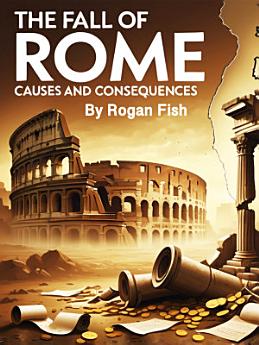The Fall of Rome: Causes and Consequences
About this ebook
One of the primary causes of the empire's decline was economic instability. Over time, the Roman economy became strained under the weight of military expansion, government spending, and inefficient management. Inflation began to plague the empire as the government devalued its currency to finance its military campaigns and public works. Additionally, the empire faced a growing reliance on slave labor, which hindered innovation and economic development. As the economy weakened, the cost of maintaining the empire’s vast infrastructure and military forces became increasingly difficult to manage, leading to a cycle of financial crises.
Political corruption and instability were also central to the empire's decline. Throughout its later years, the Roman government became riddled with corruption, particularly within the ruling elite. Emperors were often chosen based on their ability to maintain power rather than their administrative abilities, leading to a lack of effective leadership. The Senate, once a powerful institution, lost its influence, and political factions within the empire vied for control, often undermining efforts to address the empire’s growing problems. This fragmentation of political power weakened the central authority, making it difficult to implement coherent policies across the empire.







